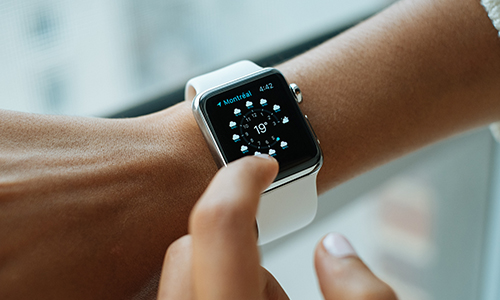Study shows wearables lack clinical impact, but researchers haven’t lost hope
January 18, 2018
Source: FierceHealthcare
 916
916

New research shows that wearables and remote patient monitoring technology have a limited impact on clinical outcomes. But digital health researchers aren't ready to abandon the promise of mobile technology.
A literature analysis published in the new Nature Partner Journal (npj) Digital Medicine reviewed 27 randomized control studies focused on wearable biosensors and found no statistically significant impact on factors like body mass, waist circumference, body fat percentage, and systolic and diastolic blood pressure. The study adds to a growing body of research indicating that clinical evidence has struggled to keep pace with the hype surrounding wearables.
However, digging into 16 “high-quality” remote patient monitoring studies, the researchers, from Cedars-Sinai Medical Center in Los Angeles, found pockets of promising evidence for certain conditions like obstructive pulmonary disease, Parkinson’s, hypertension and lower back pain. Even more specifically, interventions that use validated health behavior models and tailored coaching saw the highest success rates. In one study, monitoring technology had a significant impact on blood pressure for adults 55 and older.
Digital health tools could find more clinical success by pairing some of the successful elements outlined in the meta-analysis with a personalized approach to remote monitoring to generate "contextually appropriate, highly tailored messages to patients at the right time and right place," the authors wrote.
But, they added, many of the consumer products on the market have not been rigorously tested, and they warned healthcare leaders to “proceed with caution before implementing and using RPM to reliably change clinical outcomes." Although wearables have been widely touted as a tool to drive healthy habits, integrating those devices into the clinical setting remains a challenge.
"There is a big difference between using these sensors to track sleep for self-betterment and using them to make medical decisions," study co-author Michelle S. Keller, MPH, a clinical research specialist at the Cedars-Sinai Center for Outcomes Research and Education, said in a release.
There are several reasons those gaps exist, including a lack of data, inconsistencies from one study to the next and the fact that many studies were still in the pilot phase.
The study comes at a time when healthcare providers are increasingly interested in using wearables to assist with chronic disease managementt, and technology companies like Apple and Fitbit are happy to oblige. Apple recently announced its Apple Heart Study in partnership with Stanford to test Apple Watch’s ability to detect irregular heartbeats. Meanwhile, Fitbit devices are being used by Scripps Research Institute as part of the National Institutes of Health’s All of Us research.
By DduRead more on
- Things to Know before Buying Newborn Baby Incubators March 31, 2022
- Highly Resistant Food Poisoning Bug Responds to Antibiotics September 6, 2018
- 4 Wearable ECGs EKGs Monitor and Their Features September 5, 2018
- Smartphone Based Diagnosis to Identify Mosquitoes Transmitting Infection September 5, 2018
- 3 Natural Plant Extracts Manufacturers on Drugdu.com September 4, 2018
your submission has already been received.
OK
Subscribe
Please enter a valid Email address!
Submit
The most relevant industry news & insight will be sent to you every two weeks.



